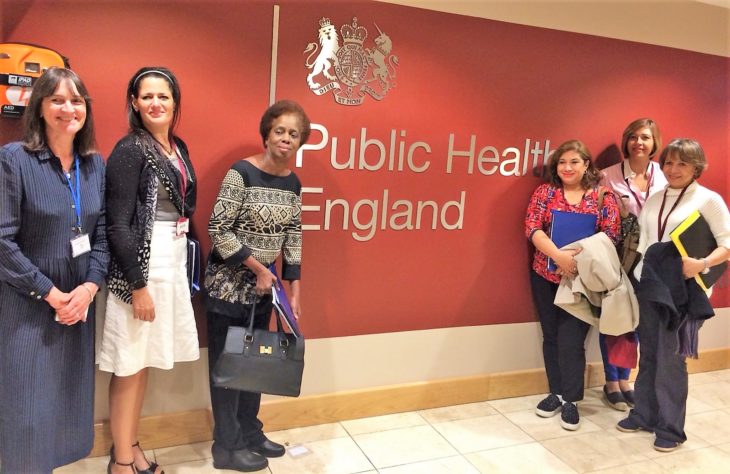The support that the EUROsociAL+ Programme is providing to CONAMA is framed by the initiative "Regulation and Implementation of Law 60 on Pregnant Minors"

Adolescent pregnancy is a phenomenon of particular relevance in Latin America and the Caribbean (LAC): the region’s adolescent fertility rate remains the second highest in the world, surpassed only by that of sub-Saharan Africa.
Panama is above LAC levels, with adolescent fertility rates 20% higher on average than the region’s levels. It is a special case within the region, as the adolescent fertility rate has fallen at a much slower rate than in the rest of the countries and has remained at levels above 85 per 1,000 women for 15 years. In 2010-2015, the latest period for which information is available, Panama had the fourth highest rate in the region, surpassed only by the Dominican Republic, Venezuela and Nicaragua. In addition, Panama has many different patterns among different areas of the country, as teenage pregnancy is concentrated mainly in Panama City and in some rural areas. The intercultural dimension is also important given that the prevalence rate is higher among indigenous communities.
In order to respond to these alarming rates and to guarantee rights to education and health, in 2017, the Panamanian State reformulated Law 29 of 2002 on pregnant minors, now known as Law 60, and it established the National Council of Pregnant Minors of Panama (CONAMA) to oversee the Law in an inter-institutional manner. CONAMA contains representatives from the Ministry of Social Development (MIDES), the National Secretariat for Children, Adolescents and the Family (SENNIAF), the Ministry of Health (MINSAL), the Ministry of Education (MEDUCA), the Ministry of Labour (MINTRAB), the Social Security Fund, the Institute for Women (INAMU) and other state institutions.
The support that the EUROsociAL+ Programme’s Gender Equality and Social Policies Areas are providing CONAMA is framed by the initiative “Regulation and Implementation of Law 60 on Pregnant Minors and Other Provisions”.
Within the framework of this action, the programme has supported the production of a first report entitled “Diagnosis and Recommendations on Adolescent Pregnancy in Panama for the Implementation of Law 60”, in order to provide concrete inputs for the following stages of the initiative. In addition, two CONAMA delegations made study and exchange visits to Uruguay and the United Kingdom, countries identified by their respective experiences as being of interest in the area of the prevention and fight against teenage pregnancy.
In particular, Uruguay has some interesting experiences in this area, including the “Intersectoral and National Strategy for the Prevention of Unintended Pregnancy in Adolescents” 2016-2020, based on inter-institutional coordination from a gender equality, rights and diversity perspective. Panamanian officials had the opportunity to meet and talk with the most significant national actors in the drafting and implementation process of the Strategy and representatives from institutional, academic and civil society spheres.
In England, the Teenage Pregnancy Strategy, which was launched in 1999, was one of the few examples of evidence-based strategies, carried out locally and with long-term resources, that led to a 51% reduction in the under-18 pregnancy rate, given that England had the third highest European teenage pregnancy rate after Romania and Bulgaria. This strategy has been in place for over 15 years and is now being pursued across the board through a national representative in Public Health England, and regional and local representatives who address this issue from a broader public health perspective. The exchange visit allowed the representatives from all the ministries that make up CONAMA to learn about the different aspects of the English strategy at the thematic and territorial level, the question of its sustainability over time, as well as its different political, social and cultural implications.
The visits generated inputs of unquestionable value to feed into the incipient regulation process of Law 60, and it represents the first stage in a broader and more structured itinerary as part of the EUROsociAL+ Programme, which has the technical assistance of two consulting firms.
Áreas de políticas sociales y equidad de género. Social Policies and Gender Equality Area / EUROsociAL+



